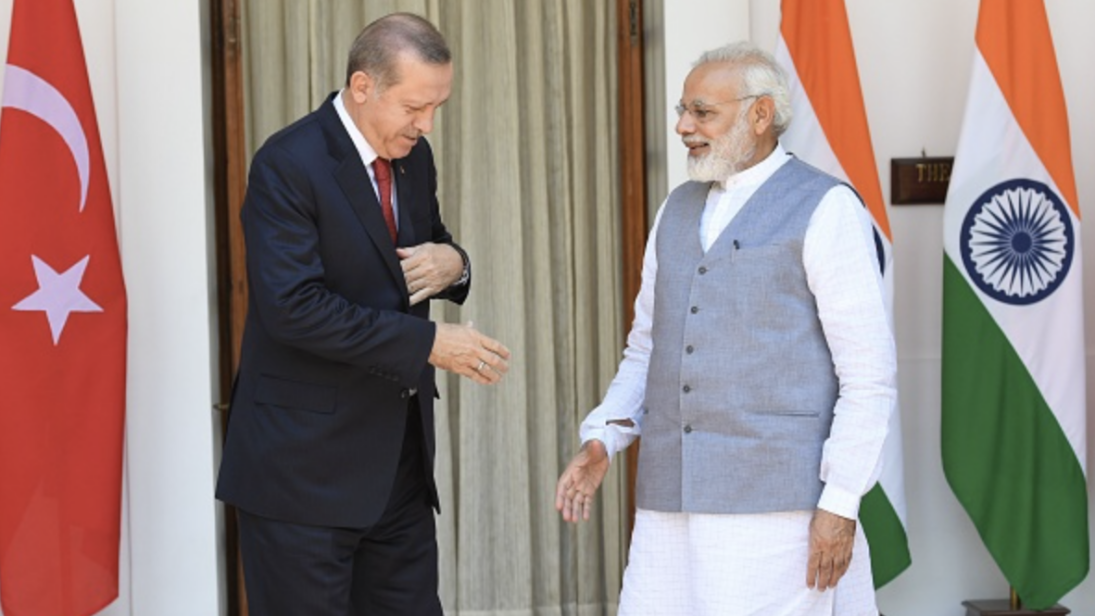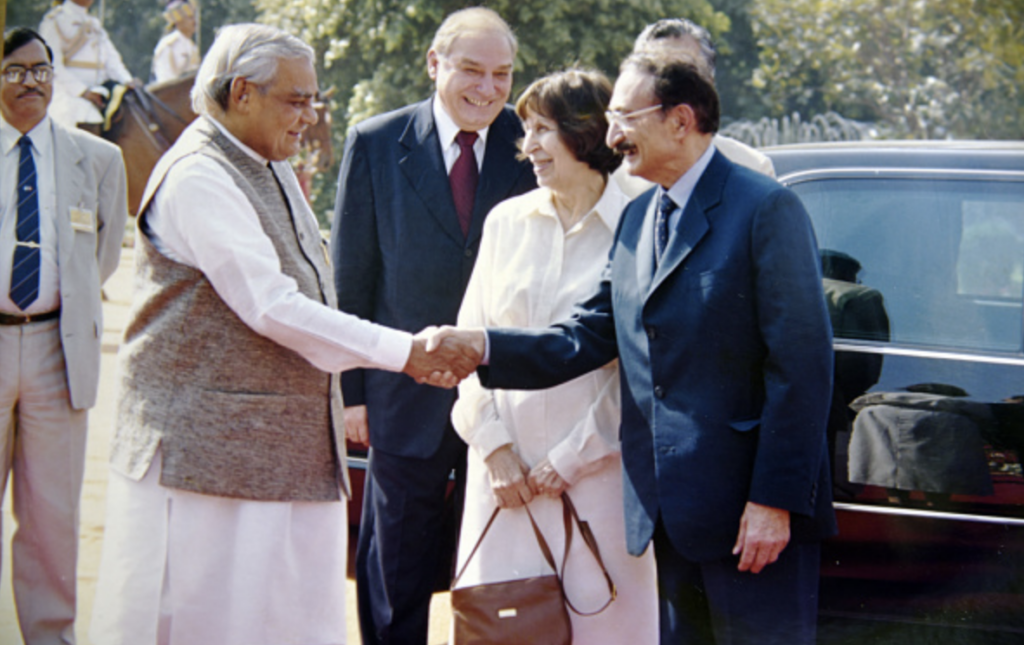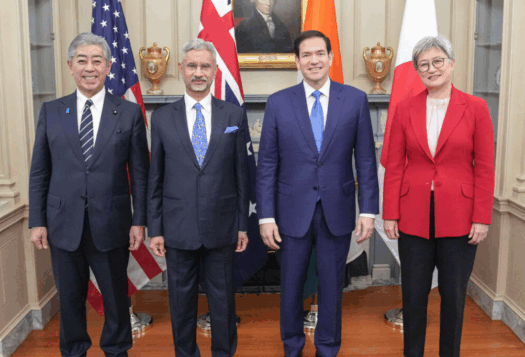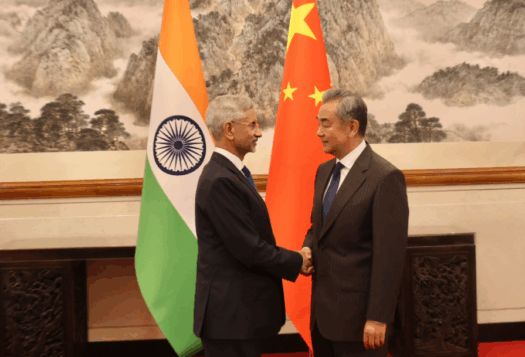
On the margins of the United Nations General Assembly (UNGA), Turkish Prime Minister Recep Tayyip Erdogan in his UNGA speech criticized India for failing to resolve ties with Pakistan and establish a “fair, permanent peace and prosperity in Kashmir.” Indian External Affairs Minister S. Jaishankar responded by meeting his Cypriot counterpart, Ioannis Kasoulides. The UNGA docket that followed included the political unification of Cyprus, which remains a contentious issue for Turkey.
The India-Cyprus bilateral meeting followed Jaishankar’s meeting with Kasoulides allegedly intended to instigate Turkey, which has been routinely criticized for its illegal occupation of Northern Cyprus. Furthermore, the India-Cyprus meeting came amidst the most recent border dispute between Armenia and Azerbaijan over the disputed Nagorno-Karabakh region. India encouraged an end to hostilities by the “aggressor side,” which many believe to be Azerbaijan, backed by Turkey. Before the flare-up, India had also expanded its defense ties with Armenia.
These meetings stand in stark contrast to the readouts from talks between Erdogan and Indian Prime Minister Narendra Modi on the sidelines of the Shanghai Cooperation Organization (SCO) summit in Uzbekistan last month. The informal meeting was an opportunity for both leaders to revive diplomatic ties, necessitating greater bilateral engagement at the highest levels. Although this meeting saw engagement on key issues including diplomatic and economic ties and Erdogan followed it up by apparently engaging in restrained criticism of India over the Kashmir issue in his UNGA speech, Turkey’s and India’s criticisms of their respective sensitive national issues to satiate domestic audiences has limited opportunities for meaningful rapprochement between both countries. However, despite underlying differences, bilateral rapprochement would benefit both India and Turkey greatly on multiple levels by encouraging economic cooperation, integrating each other into relevant multilateral forums, and curbing terrorist activities.
Past Ties and Tensions
India and Turkey have shared a common ideological outlook from their inceptions. In 1921, while Gandhi launched the Non-Cooperation movement to initiate the economic boycott of the British through the picketing of “foreign-made goods”, he clubbed his movement with that of the Khilafat Movement — a movement that called for the restoration of the Khalifa or Caliph as the head of the Islamic world in Turkey. Since indigenous Indian Muslims supported the Khilafat movement, Gandhi extended his support to the Khilafat Movement and launched the two movements in conjunction with one another to ensure greater unity among indigenous Indian Hindus and Muslims.
However, despite underlying differences, bilateral rapprochement would benefit both India and Turkey greatly on multiple levels by encouraging economic cooperation, integrating each other into relevant multilateral forums, and curbing terrorist activities.
During the first years of an independent India, Jawaharlal Nehru oversaw the emergence of a socialist and secular state from its Turkish counterpart. Similarly, Kemalist Turkey’s foreign policy focused on the principle of yurtta sulh, cihanda sulh(Peace at Home, Peace in the World), which echoed India’s Nehruvian nonalignment.
Despite a shared political ideology, the rise of Erdogan’s Justice and Development Party (AKP) and Narendra Modi’s Bharatiya Janata Party (BJP) have broadened the political gap between both countries. The growing Islamization within Turkish society spurred by Erdogan’s “Pan Islamism” foreign policy orientation has isolated India. Moreover, Turkey’s criticism of India after the abrogation of Article 370, coupled with Ankara’s decision to elevate its relationship with Islamabad to a strategic partnership, has demonstrated that Turkey’s sympathies in the subcontinent do not lie with India. Over the last decade, Turkey has raised the Kashmir issue at the United Nations to display its support for the Pakistani stance on Kashmir, consistently calling for “a peaceful resolution of the Kashmir issue.”
This overt mention of the Kashmir issue and support for Pakistan at multilateral forums has irked India. New Delhi considers Kashmir an “integral part of India” and has historically rejected any third-party reference to the conflict. Moreover, Turkey’s implicit support of radical Indian Muslim political organizations, such as the Popular Front of India (PFI), has precipitated deteriorating ties between India and Turkey.
The Indian government’s complicity in the ill-treatment of Indian Muslims has riled Erdogan, who considers himself the face of the international Muslim ummah (community). He has consistently criticized the Indian government for perpetuating discrimination against Indian Muslims, which has led to several repartees from India. Domestic polarization in both India and Turkey has led to their crumbling bilateral relationship.
First Step to Rapprochement: Mellowing Down Direct Criticisms
Modi and Erdogan’s meeting during the Shanghai Cooperation Organization summit was significant amidst existing tensions between the two countries. During this meeting, the two leaders holistically reassessed bilateral ties between India and Turkey and deliberated on ways to deepen economic cooperation. This meeting was significant for it took place three years after Prime Minister Modi had canceled his first stand-alone bilateral visit to Ankara in 2019 to formally protest against Ankara’s explicit support to Pakistan on the Kashmir issue in the UN.

Nevertheless, for nuanced engagement to take place, Turkey will have to mellow down its criticism of India on the Kashmir issue. According to analyst Niranjan Marjani, Turkey must “decouple itself from Pakistan and conduct its relations with India independently”. Turkey will have to distinguish India and Pakistan in its foreign policy agenda and engage with the two as independent entities.
Turkey will have to engage in a robust cost-benefit analysis and invest in its ties with India through an economic pivot first before reworking its approach toward Indian domestic politics. In a similar way that Ankara has adopted a neutral stance on China’s controversy over their Uyghur population, Turkey will have to follow the same principle of calibrated reciprocity vis-a-vis India and refrain from direct references to Kashmir. Similarly, India should maintain a neutral stance on Northern Cyprus and Nagorno-Karabakh issues to build trust with Turkey.
By removing controversial rhetoric from government statements, India and Turkey can prioritize collaborating on transnational issues. For example, India could work with Turkey to curb its military aid to Pakistan and ensure that Pakistani soil is not hosting terrorism against India. In the process, Turkey can seek Indian support and attempt to move away from the Financial Action Task Force (FATF) list, which can revive the suffering Turkish economy.
Bolstering Economic Cooperation
If India wishes to include Turkey in its multi-alignment policy, it must increase its engagement with Turkey at the economic level. Commercial ties have been at the forefront of India’s alliances with Saudi Arabia and the United Arab Emirates, and the Indian government must extend the same to Turkey. Turkey aims to reconcile ties with the UAE and has used economics as the cornerstone of this partnership. India enjoys a positive relationship with the UAE and can assist in facilitating greater engagement between both countries by bidding for Turkey’s extended inclusion within the I2U2 – an economic grouping composed of India, Israel, the United States, and the United Arab Emirates (UAE).
In addition, bilateral trade between India and Turkey has increased from $8 billion to $10 billion between 2018 and 2021. India could sign a free trade agreement or a Comprehensive Economic Partnership Agreement (CEPA) with Turkey to continue the current trajectory and facilitate better economic relations. Turkey could include India in the “Asia Anew Initiative,” which extends economic and trade ties with Turkey’s Asian partners, including ASEAN. India’s flourishing economic relationship with Turkey would enable it to deepen its burgeoning economic presence in the Middle East independently of Pakistan’s diplomatic influence in the region. India and Turkey could also sign a bilateral free trade agreement to enable both states to deepen their mutual economic cooperation.
If India wishes to include Turkey in its multi-alignment policy, it must increase its engagement with Turkey at the economic level.
Similarly, this cooperation could translate into an enduring convergence at the multilateral level. An existing Indian presence in these multilateral forums could benefit Turkey because New Delhi could act as a neutral mediator between Ankara and other Middle Eastern powers. For example, India could represent Turkish interests in the diplomatic quartet comprising India, Israel, the United States, and the United Arab Emirates. Turkey and the UAE have shared an enduring diplomatic rivalry that India’s involvement can help resolve.
Potential Natural Allies
If India and Turkey wish to become natural allies, both states must first eschew making controversial and inflammatory remarks about mutually contentious geopolitical issues. India must attempt to remain neutral on the Cypriot and Nagorno-Karabakh issues while Turkey must abstain from raising the Kashmir issue at international forums and treat its bilateral relations with India and Pakistan independently. After building mutual trust, both India and Turkey must then deepen economic engagement through bilateral and multilateral means — for building on the India-Turkey relationship will deepen India’s links in the Middle East while allowing for greater Turkish engagement in South Asia, giving each side access to each other’s market. This engagement would then usher in a new era of enduring peace in the region to keep with Gandhi and Ataturk’s secular visions.
***
Image 1: Prakash Singh/AFP via Getty Images
Image 2: Sondeep Shankar/Getty Images


